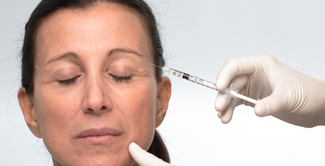Dr Amy Paller on Fatigue in Childhood Atopic Dermatitis
In this exclusive interview with The Dermatologist, Dr Amy Paller discussed how atopic dermatitis (AD) severity affects fatigue in children and how physicians can take a proactive approach to address it based on her recent study, “Prevalence and Associations of Fatigue in Childhood Atopic Dermatitis: A Cross-Sectional Study.”1
Amy S. Paller, MD, is the Walter J. Hamlin professor and chair of the department of dermatology, as well as a professor of pediatrics, at Northwestern University’s Feinberg School of Medicine in Chicago, IL.
How do AD severity, demographics, and comorbidities affect fatigue in children?
What we found in this study is that fatigue is very strongly correlated with a wide variety of metrics for AD severity. Children who are more severely affected, whether we're talking about the physician score or patient-reported outcomes measures related to itch, pain, and sleep, had very high correlations with fatigue, which is a domain that we don't usually think about too much in children with AD as opposed to children with a wide variety of chronic diseases.
How prevalent is fatigue in children with AD and how does this compare with adult patients with AD?
Regardless of their demographics or even really their comorbidities, although we know that allergic rhinitis, for example, increases fatigue, we saw this correlation [of fatigue] with greater [AD] severity. Overall, about 30% of patients had moderate or severe fatigue. And that's pretty close to what's been fairly recently reported in the adult community.
How can physicians take a proactive approach to addressing fatigue in patients with AD?
First, I want to make sure that we define what we mean by fatigue. We're not talking about sleep disturbance such as poor sleep with frequent awakenings. We're not talking about sleep-related impairment either where it's specifically feeling sleepy during the day. It's more this profound tiredness, the lack of energy, the lack of motivation, just feeling exhausted, and sometimes even feeling weak. These are what we call fatigue, especially linked with chronic disorders.
People who just have chronic disease have this fatigue, which of course tends to manifest during the day, but also is related to decreased ability to sleep. When we're thinking about AD, we think about itch. We say, how well are you sleeping at night? Do you have a feeling of exhaustion all the time? Do you feel energy, motivation? Do you feel tired during the day? These are the kinds of questions.
I hope that this brings awareness to the frequency of children having fatigue, which interestingly was better recognized by parents for adolescents than for younger children. I think parents sometimes don't even realize how fatigued their children with moderate and particularly severe AD are.
What further research is needed to address fatigue in childhood AD?
It really comes down to better recognition. For the first time, we're really bringing out that this is something that can affect children and their productivity, especially with their ability to participate in activities like sports that require energy. The next step for us is to do a much larger, probably multi-center study looking at these relationships between fatigue and itch, pain, sleep, and severity of AD. Then sorting out whether the tools that we're currently using to treat AD take care not just of itch and sleep, but also of patient fatigue.
Are there any additional tips or insights you'd like to share with your colleagues regarding fatigue and childhood AD?
I would just say that it's such an important aspect of life for these children because it affects their psychosocial being, and of course that's got the biggest impact on quality of life. When we're talking to patients, we need to broaden our questions to ask about fatigue and make sure we keep track of that because tracking that will help us to better understand the impact of our care on their quality of life.
Reference
Rangel SM, Kim T, Sheth A, et al. Prevalence and associations of fatigue in childhood atopic dermatitis: a cross-sectional study. J Eur Acad Dermatol Venereol. 2023;37(4):763-771. doi:10.1111/jdv.18819























